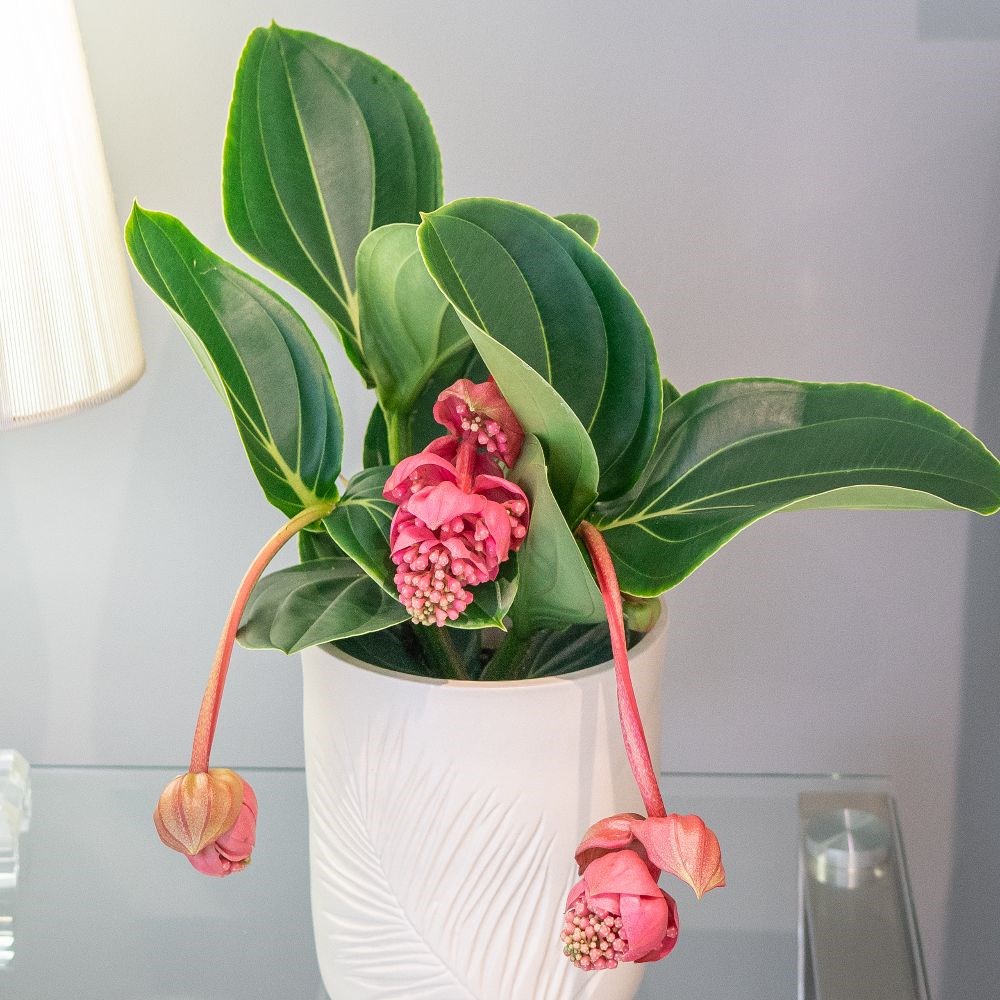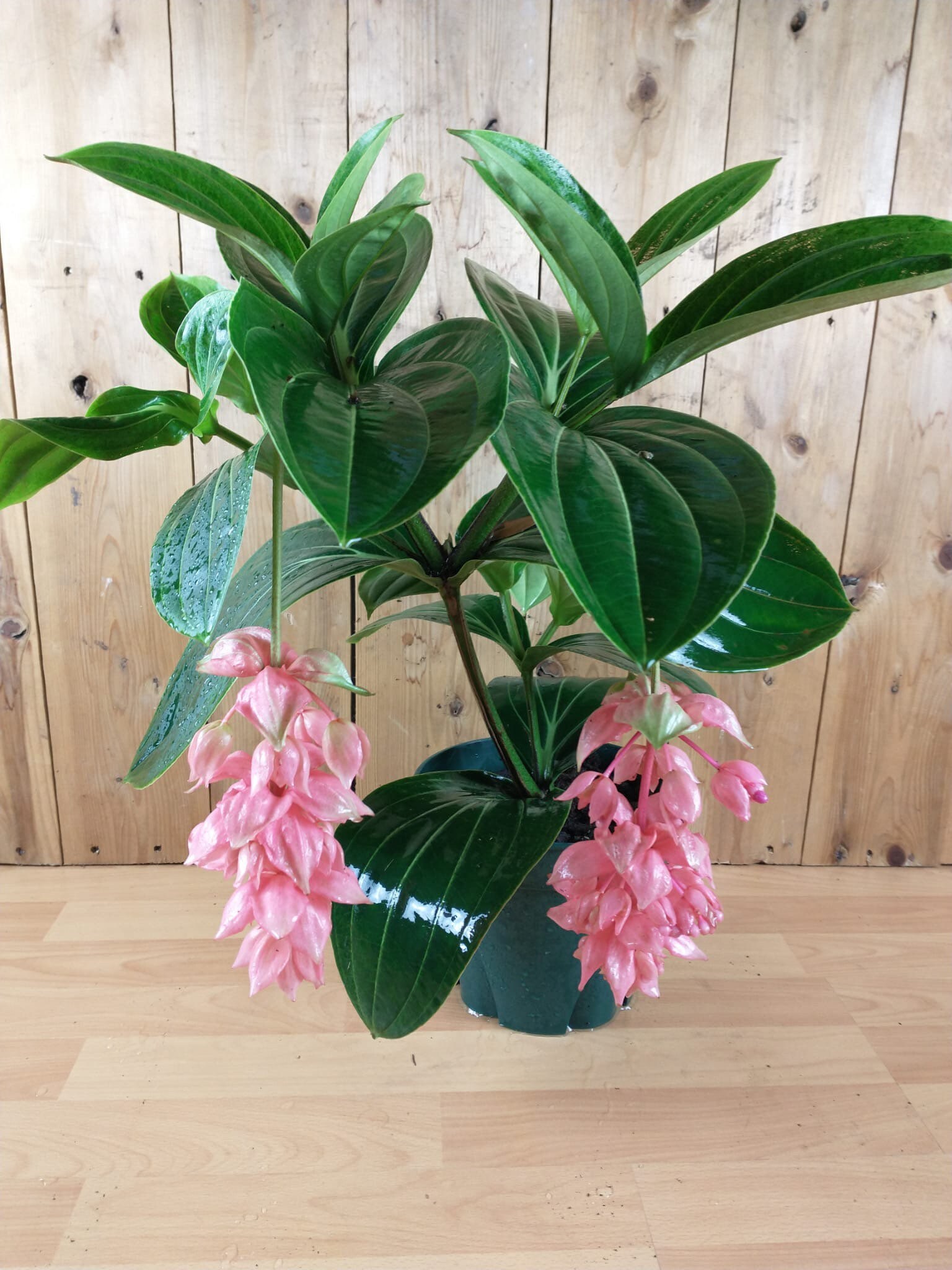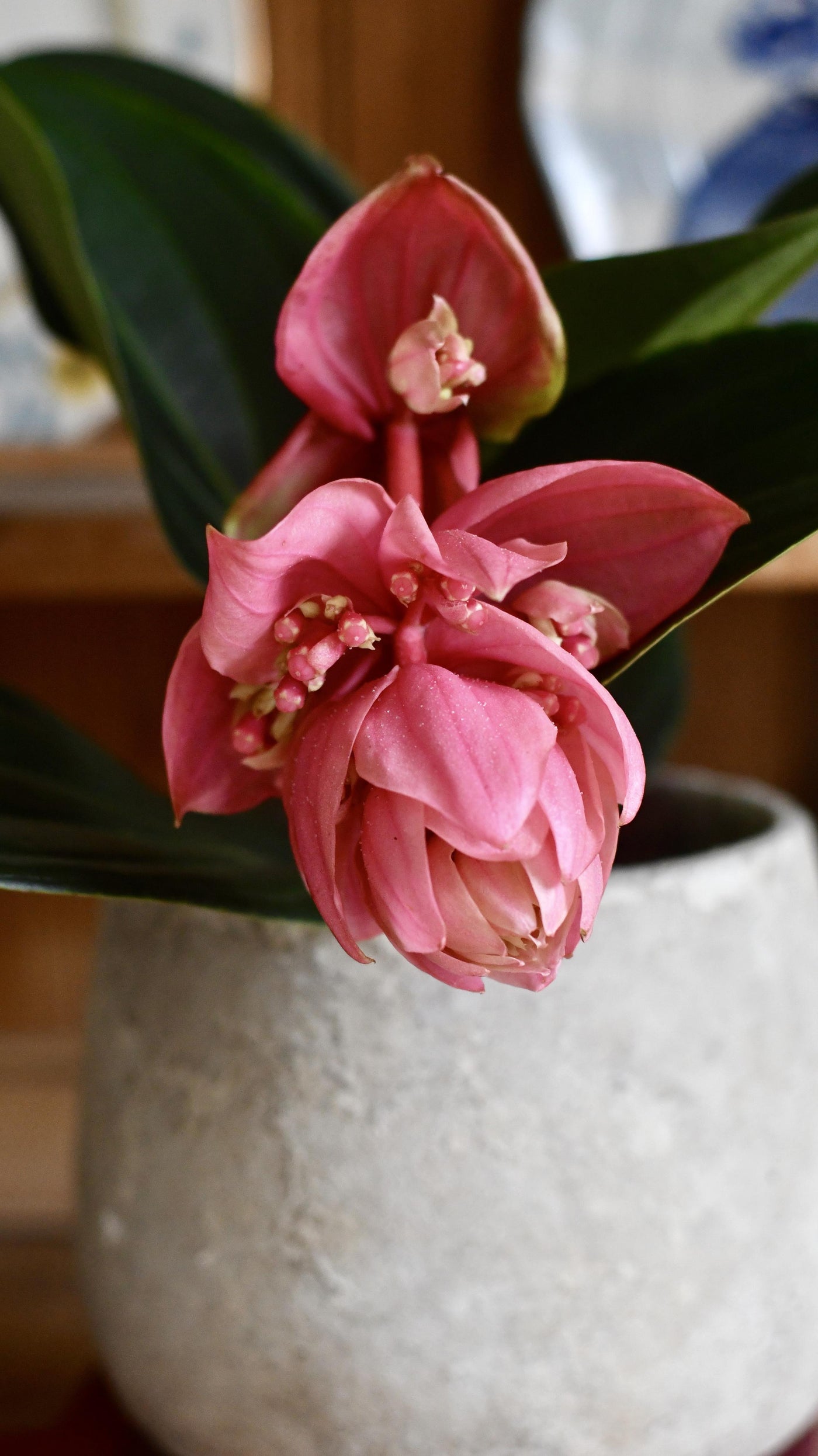Alright, let’s talk about getting your hands on a Medinilla magnifica, that stunning tropical plant with its cascading pink blooms. You’re aiming for a long, in-depth article – over 2000 words, no pictures for now, all to boost your SEO and climb those Google rankings. Sounds like a plan! Let’s dive into the world of finding a Medinilla magnifica for sale.
Where to Find Your Pink Princess: Medinilla Magnifica for Sale
So, you’ve fallen for the Medinilla magnifica, also known as the showy medinilla or rose grape. It’s easy to see why! Those incredible drooping clusters of pink flowers are truly something special, making it a coveted houseplant for enthusiasts. But where exactly do you track one down? Let’s explore the different avenues you might consider when searching for a Medinilla magnifica for sale.
Local Nurseries and Garden Centers

Your first instinct might be to head to your local nurseries and garden centers. This can be a great option, especially if you prefer to see the plant in person before making a purchase.
# Pros of Local Shopping
Visual Inspection: You can examine the plant’s overall health, check for any signs of pests or diseases, and get a good sense of its size and maturity.
# Cons of Local Shopping

Limited Availability: Not all nurseries will carry Medinilla magnifica. It’s a somewhat specialized plant, so smaller garden centers might not have it in stock. Even larger ones might only have it seasonally or sporadically.
Online Plant Retailers
The internet has opened up a vast marketplace for plants, and you’ll likely find several online retailers offering Medinilla magnifica for sale.
# Pros of Online Shopping

Wider Selection: Online retailers often have access to a broader network of growers and can offer a more diverse selection of plant sizes and varieties.
# Cons of Online Shopping
Inability to Inspect Before Purchase: You won’t be able to physically examine the plant before it arrives. Rely on the retailer’s reputation and return policies.
Specialized Plant Societies and Forums
Don’t overlook the potential of connecting with other plant enthusiasts! Specialized plant societies and online forums dedicated to tropical plants or rare houseplants can be valuable resources.
# Pros of Plant Societies and Forums
Access to Rare or Unique Specimens: You might find individuals selling divisions or propagated plants that aren’t readily available in mainstream retail.
# Cons of Plant Societies and Forums
Availability Can Be Sporadic: You’ll need to keep an eye out for when plants become available.
Considerations When Buying a Medinilla Magnifica
No matter where you decide to purchase your Medinilla magnifica, there are a few key things to keep in mind to ensure you’re getting a healthy and thriving plant.
# Check the Plant’s Overall Health
Look for vibrant green leaves (unless it’s a variegated variety, in which case check for healthy variegation). Avoid plants with yellowing, brown, or wilting leaves, which could indicate underlying issues. Inspect the stems for any signs of damage or disease.
# Examine the Root System (If Possible)
If the plant is in a clear pot or if the seller allows, gently check the roots. Healthy roots are typically white or light brown and firm. Avoid plants with dark, mushy roots, which could indicate root rot.
# Look for Signs of Pests
Carefully inspect the leaves, stems, and undersides of the leaves for any signs of pests like spider mites, mealybugs, or scale.
# Consider the Plant’s Size and Maturity
Think about where you plan to place your Medinilla and choose a size that fits comfortably in that space. Younger plants might be more affordable, but they will take longer to flower. More mature plants might be more expensive but could bloom sooner.
# Inquire About the Plant’s History and Care
If possible, ask the seller about the plant’s growing conditions, how long they’ve had it, and any specific care instructions they can provide.
Preparing for Your New Medinilla Magnifica
Once you’ve found your perfect Medinilla magnifica for sale and it’s on its way (or you’ve brought it home), it’s essential to be prepared to provide the right environment for it to thrive.
# Light Requirements
Medinilla magnifica prefers bright, indirect light. Avoid direct sunlight, which can scorch its delicate leaves. An east-facing or north-facing window is often ideal. You can also use sheer curtains to filter the light from a south-facing or west-facing window.
# Watering Needs
Water your Medinilla when the top inch or two of soil feels dry to the touch. Ensure the pot has good drainage to prevent waterlogging, which can lead to root rot. Reduce watering slightly during the winter months when the plant’s growth slows down.
# Humidity
As a tropical plant, Medinilla magnifica appreciates high humidity. You can increase humidity by using a humidifier, placing the pot on a pebble tray filled with water, or misting the plant regularly (be mindful of potential fungal issues with excessive misting).
# Temperature
Maintain a consistent room temperature between 18°C and 24°C (65°F and 75°F). Avoid placing your plant near drafts or extreme temperature fluctuations.
# Soil and Repotting
Use a well-draining potting mix that retains some moisture. An orchid mix or an aroid mix amended with some peat moss or coco coir can work well. Repot your Medinilla only when it becomes root-bound, usually every two to three years, and choose a pot only slightly larger than the previous one.
# Fertilizing
Feed your Medinilla magnifica with a balanced liquid fertilizer diluted to half strength every two to four weeks during the growing season (spring and summer). Reduce or stop fertilizing during the fall and winter.
By taking the time to research where to buy a Medinilla magnifica for sale and understanding its care requirements, you’ll be well on your way to enjoying the beauty of this exquisite tropical plant in your own home. Happy plant hunting!
Conclusion
Finding a Medinilla magnifica for sale requires a bit of exploration, whether you choose to visit local nurseries, browse online retailers, or connect with fellow plant enthusiasts. Each option has its own set of advantages and disadvantages. Regardless of your chosen path, remember to carefully inspect the plant’s health, consider its size and maturity, and inquire about its care history. Once you bring your Medinilla home, providing the right light, water, humidity, and temperature will ensure it thrives and rewards you with its spectacular pink blooms for years to come.
Frequently Asked Questions
Where is the best place to buy a healthy Medinilla magnifica?
The “best” place depends on your preferences. Local nurseries allow you to inspect the plant in person, while online retailers offer a wider selection and convenience. Reputable sellers, whether local or online, who prioritize plant health and provide good customer service are key.
How much does a Medinilla magnifica typically cost?
The price of a Medinilla magnifica can vary depending on its size, maturity, and the retailer. Smaller, younger plants might cost between £20 and £50, while larger, more mature specimens can range from £70 to £150 or more. Rare or variegated varieties may also command higher prices.
Is Medinilla magnifica a rare houseplant?
While not the most common houseplant, Medinilla magnifica is becoming increasingly popular and available. However, certain sizes or unique varieties might still be considered relatively rare and harder to find.
How long does it take for a Medinilla magnifica to bloom?
A Medinilla magnifica can take several years to mature and start blooming. Younger plants might not flower for a while, while more mature plants are more likely to produce blooms. Providing the right growing conditions, especially adequate bright, indirect light, is crucial for encouraging flowering.
Can Medinilla magnifica be grown outdoors in the UK?
Medinilla magnifica is a tropical plant that is not hardy in the UK climate. It requires warm temperatures and high humidity and will not survive outdoors during the colder months. It’s best grown as an indoor houseplant in the UK.
